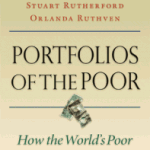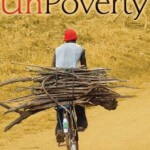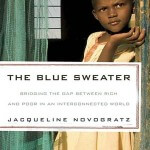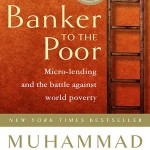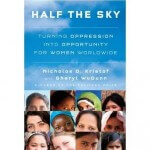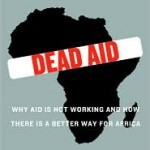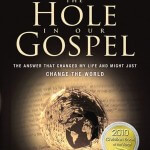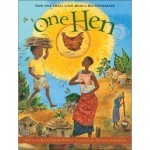What We’re Reading: A Microfinance, Poverty, Empowerment Reading List
Looking for your next big read? We’ve put together a list of compelling books we’re reading, running the gamut from microfinance and international development, to global aid and putting your faith into action. Check out our list and let us know what you think in the comment field below. What would you add, and what doesn’t make your list? Like you, we’re always looking for a good book recommendation so we want to hear from you.
1. Portfolios of the Poor: How the World’s Poor Live on $2 a Day
Daryl Collins, Jonathan Morduch, Stuart Rutherford, & Orlanda Ruthven, 2010
This book tackles the fundamental question of how people in poverty make ends meet. Over 250 families in Bangladesh, India, and South Africa participated in this unprecedented study of the financial practices of the world’s most impoverished people.
2. UnPoverty: Rich Lessons from the Working Poor
Mark Lutz, 2010
This book written by Opportunity’s former SVP of Global Philanthropy features stories of visiting those in extreme poverty and calls us to join an accelerating revolution to eradicate poverty during our lifetimes. Acute poverty has more to do with location than with laziness or lack of intelligence.
3. The Blue Sweater: Bridging the Gap Between Rich and Poor in an Interconnected World
Jacqueline Novogratz, 2009
The Blue Sweater is the inspiring personal memoir of Novogratz, who has spent her life on a quest to understand global poverty and to find new ways of tackling it. From her stumbling efforts as a young idealist to the creation of the trailblazing organization she runs today, she brings us a series of insightful stories and unforgettable characters.
4. Banker to the Poor: Micro-Lending and the Battle Against World Poverty
Muhammad Yunus, 2003
Yunus’s memoir describes the journey that led him to rethink the economic relationship between rich and poor and how he established Grameen, a bank devoted to providing the most impoverished people Bangladesh with microloans. This is the definitive history of microcredit direct from the man who conceived it.
5. Half the Sky: Turning Oppression into Opportunity for Women Worldwide
Nicholas D. Kristof and Sheryl WuDunn, 2010
Kristof and WuDunn make a passionate call to arms against the oppression of women in the developing world, pointing out that the greatest unexploited economic resource is women. Through stories of extraordinary women, they help us see that the key to economic progress lies in unleashing their potential.
6. Dead Aid: Why Aid Is Not Working and How There Is a Better Way for Africa
Dambisa Moyo, 2010
Moyo’s book offers proposals for developing countries to finance development without reliance on foreign aid. She illuminates the way in which overreliance on aid has trapped developing nations in a vicious circle of aid dependency, corruption, market distortion, and deepening poverty.
7. The Hole in Our Gospel
Richard E. Stearns, 2010
Stearns writes of his passionate call for Christians to change the world by actively living out their faith. Using his own journey as an example, he explores the hole that exists in our understanding of the Gospel; that it was always meant to be a world-changing social revolution, a revolution that begins with us.
8. One Hen: How One Small Loan Made a Big Difference
Katie Smith Milway, 2008
This children’s story, inspired by true events, is about Kojo, a boy from Ghana who turns one small loan into a livelihood for many. One Hen shows how a little help can make a big difference.
